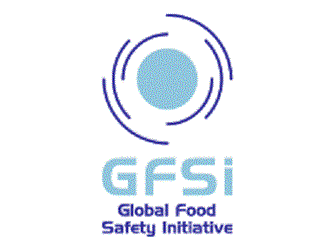Choosing The Best GFSI Certification And Preparing For Its Audit
By Melissa Lind, contributing writer

The Global Food Safety Initiative standards certification is not required by regulatory agencies, but is highly valued in the food industry. Though GFSI’s motto is “One Certified, Accepted Everywhere,” one size does not fit all.
Preparation for and completing the process for GFSI certification can be costly and require the commitment of time and resources. When considering GFSI certification, it is important to not only meet your company’s needs, but to keep in mind the needs of potential customers. Having the right GFSI certification may make your company’s products more attractive in future negotiations. Once you have identified the GFSI certification to pursue, you should assess your company objectives.
Assessing Management Objectives
Once you have identified your customer’s requirements and evaluated other considerations, your next step is to assess your management systems. All GFSI benchmark standards require a food safety management system (FSMS). However, some schemes are multi-faceted and may extend beyond food safety into areas such as quality management with a food safety and quality management system (FSQMS). Distinguishing between the types of management systems and the schemes which may be applied may include consideration of the following attributes:
- Facility or operation category
- Number of locations
- Facility size
- Number of personnel
- Product risk
- Identified number of HACCPs
- Food product category or categories to be included
The implementation and management of an FSMS or FSQMS is a significant financial commitment, but may have both immediate and long-term benefits. Budgetary consideration should be taken for the initial development period, including implementation, but also for continuing management of the system. Initial investment may include: training of key personnel, outside consultants, staff allocation, and audit costs. Long-term management includes: additional training for updates to standards, annual review and revision, and recertification audits — all of which have financial implications.
GFSI Audit Preparation
The main process of GFSI certification will be the audit. The majority of your time and resources will go into planning for the official audit. A checklist of relevant areas of concern should include activities within:
- Current GFSI Standard — Determine which benchmark will be addressed. Company personnel should have copies of the current version of guidance documents.
- Management Team — There should be a designated team with an individual to lead the development of the FSMS or FSQMS. This team must include HACCP or safety leaders and other relevant department members.
- Training — Team leader(s) should be trained in and knowledgeable of the particular GFSI standards. Integral team members should also be trained where relevant.
- Safety Plan And Readiness — Your company must have a well-designed and implemented safety system based on HACCP, including documentation. Core areas including GMPs, audit practices, verification processes, Sanitation Standard Operating Procedures (SSOPs), supplier approval, recall plan, and traceability and training plans.
- Certification Timeline — The time period for certification should be identified and communicated to relevant personnel. Documentation of specific task time points may be valuable in assessing progress.
- Consultant Requirements — If your company does not have the resources or expertise to develop a documented FSMS that can meet the benchmark standards, you may need to consider outside consultant engagement.
- Internal Audit/Gap Assessment — The food safety management team should be capable of conducting an internal audit that will identify any gaps prior to outside audits. Internal audits should be performed in the same manner and to the same standards as an external audit with identified gaps to be corrected and verified within a set time period.
- Third-Party Audit — In some cases, companies may find it advantageous to have an audit performed by an outside agency in preparation for an official audit. This is just one more step in ensuring that your company is ready for certification and that no surprises will occur during the audit.
